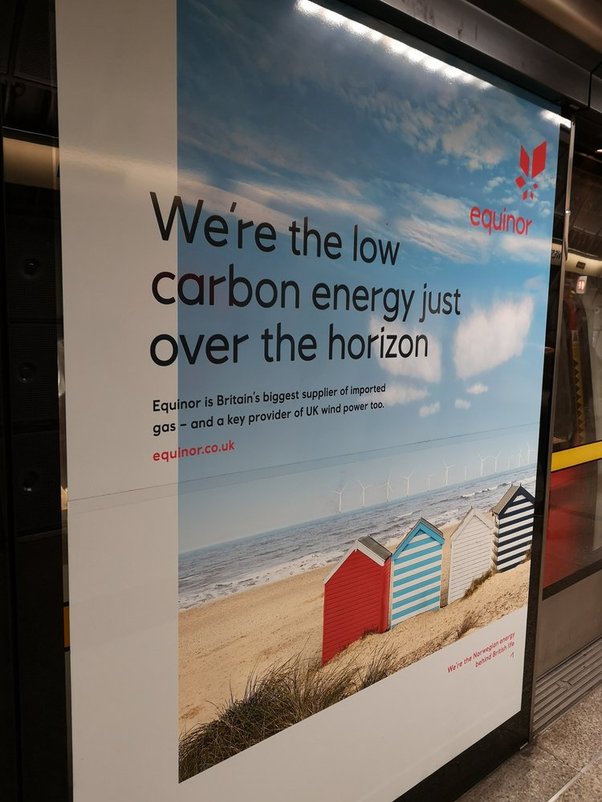A Global Witness investigation reveals that government officials met with oil and gas lobbyists an average of 1.4 times per working day in 2023.
UK government ministers met with representatives from the oil and gas sector at least 343 times in 2023, according to Global Witness analysis of data collected by Transparency International UK.
That’s equivalent to 1.4 meetings per working day of the year and marks an increase from the 330 meetings held in 2022.
The revelations come after the UK government backtracked on climate commitments and doubled down on North Sea oil and gas, potentially deepening the country’s reliance on fossil fuels and casting doubt over the UK’s ability to reach net zero by 2050.
The analysis reveals that meetings between oil and gas lobbyists and the UK government have been steadily increasing since Transparency International UK started tracking them in 2012.
They reached record-high levels in November 2023, when the government met with oil and gas lobbyists at least 63 times, equivalent to almost three meetings every working day.
This coincided both with the introduction of the Offshore Petroleum Licensing Bill, which would mandate annual licensing of new oil and gas fields in the North Sea, and the beginning of the United Nations Climate Change Conference in Dubai.
The intense period of lobbying also followed the approval of Rosebank, the UK’s largest untapped oilfield, in September.
Who was lobbied the most?
The Department for Energy Security and Net Zero (DESNZ) had the most contacts with oil and gas lobbyists, meeting with them at least 214 times in 2023 and 249 times the year before.
Graham Stuart, the minister until recently in charge of energy security and net zero at DESNZ, has personally met with oil and gas lobbyists 55 times in 2023. At least a quarter of all his official meetings last year were with oil and gas lobbyists. He has said that oil and gas exploration in the North Sea would be “good for the environment”, claiming that ‘when we burn our own gas it’s got lower emissions around its production than foreign gas’.
DESNZ Secretary of State Claire Coutinho and Under Secretary of State Andrew Bowie have met with oil and gas lobbyists 42 times each. For Coutinho, these amounted to 42% of all her declared meetings in 2023.
In other parts of the government, officials in the Department for Business and Trade met with oil and gas lobbyists at least 75 times in 2023, while the Treasury met with them at least 22 times.
In 2022, Kwasi Kwarteng, then Secretary of State for Business, Energy and Industrial Strategy, managed to meet with oil and gas lobbyists 112 times. Oil and gas representatives attended at least 28% of all his external meetings that year, when the short-lived Truss government capped soaring energy bills but declined make energy companies pay a windfall tax.
Prime Minister Rishi Sunak attended seven meetings with oil and gas organisations in 2023, including a meeting with Shell, North Sea Midstream Partners and Harbour Energy on the same day he pledged to “max out” the UK’s oil and gas reserves and granted hundreds of new oil and gas licenses.
Who did the lobbying?
We define an oil and gas lobbyist to be any organisation that can be reasonably assumed to have the goal of influencing policy or legislation in the interests of a fossil fuel company and its shareholders.
Gas and electricity supplier EDF Energy was the company that made itself most comfortable in Whitehall last year, meeting with government officials at least 44 times — on average, more than once per working week.
They were followed by BP with 42 meetings, a third of which were with then Minister of State for Energy Security and Net Zero, Graham Stuart. Octopus Energy met with the government 41 times, SSE 38 times and Shell 35 times.
At least 78 meetings with the government in 2023 were attended by one of the big five European and US oil and gas majors — BP, Shell, ExxonMobil, Chevron and TotalEnergies. The same year, they paid their shareholders $111 billion in dividends.
So what?
Through two years of crisis during which the UK’s reliance on fossil fuels drove millions into energy poverty, oil companies posting record profits were intensely lobbying the government.
At the same time, the UK government backtracked on climate commitments that would reduce the UK’s consumption of fossil fuels, and doubled down on oil and gas which will primarily be exported for profit, with little impact on UK bills or energy security.
None of the ministers or departments named in this article responded to a request for comment.
Ministers may argue that they need to work closely with these companies as important partners in the energy transition and as investors in the UK. But whether there is a connection between the lobbying and the pro-fossil fuel policies is a question only the UK government can answer.
Methodology
The original data collected by Transparency International doesn’t publish meetings in a standardised format. While we’ve done our best to standardise it, these numbers are likely to be an underestimate. We identified some 65 oil and gas organisations and their industry bodies, but there may be many more that we missed.
We consider an oil and gas lobbyist to be any organisation that can be reasonably assumed to have the goal of influencing the formulation or implementation of policy or legislation in the interests of a fossil fuel company and its shareholders. This includes, for example, any company that has significant business activities in the exploration, extraction, refining, trading, specialised transportation of oil and gas or sale of electricity derived from them. Our definition also includes trade associations that represent the interests of an oil and gas company’s management and/or shareholders.
Additionally, this data only covers ministers’ external meetings in their official capacity. It does not include meetings they’ve had in their capacity as members of a political party.
There are instances when multiple ministers may have attended the same meeting with oil and gas lobbyists. In these cases, we have counted the meeting once for each minister present.
Calculations are based on 260 working days a year.


